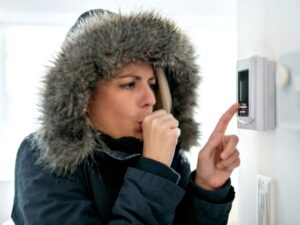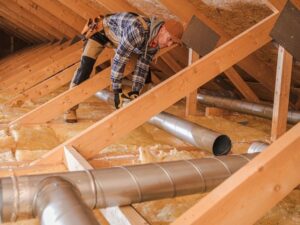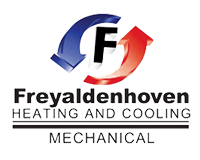Use Natural Geothermal Energy to Cool Your Home
As the issues of environmental pollution and exhaustion of natural resources rise all around the globe, the search for clean sources of energy becomes an ever-present endeavor. Efforts to preserve natural environments and to reduce carbon footprint range from basic steps, such as plastic bag reuse or carpooling, to enormous gestures, such as harnessing the energy of the sun with solar panels.
As a homeowner in Little Rock, Arkansas, you want your house to be energy-efficient so it’s easy on the environment and on your wallet. At the same time, you and your family’s comfort are still important to you, especially during peak seasons. If you wonder how to merge these two objectives together, consider geothermal heat pumps for keeping you comfortably cool all summer long.
What Is Geothermal Energy?
The geothermal technology used in ground source heat pumps takes advantage of the temperature differences in the air above ground and in the subsurface soil. While the air above the ground experiences a wide range of temperatures throughout a year, the temperature stays almost constant just a few feet below the surface due to the Earth’s insulating properties. The temperature rises about 1 F with every 70 feet in depth.
Geothermal Energy Uses
As a renewable resource, geothermal energy is “free” energy generated by geothermal systems, which are widely used for heating and cooling applications. A geothermal heat pump transfers heat from point to point by way of circulating of heat-conveying fluid. Such systems typically include an indoor handling unit and an underground pipe system, also known as an earth loop.
During the colder season, fluid flowing through the earth loop or well soaks up heat from the ground and moves it indoors. The collected heat is then compressed to a higher temperature by the indoor unit and dispersed throughout the house. During summer months, your geothermal AC unit carries heat from the house into the earth or aquifer.
Common Variations of Geothermal HVAC systems
The earth loop pipes are usually made of polyethylene and may be placed horizontally or vertically.
A horizontal pipe loop is usually laid just below the ground level and takes up quite a bit of space. Many residential structures choose horizontal loop configuration as it’s installation is more economical. However, this construction is less efficient under extreme weather conditions.
The pipes may also go under the ground vertically and stretch hundreds of feet below the ground. A vertical loop is space and energy efficient but is a lot costlier to execute because it involves deep drilling and needs various excavating equipment. Installation of vertical loops is more common for industrial and commercial purposes.
Another pipe design, called an “open loop” or a water-source loop, is preferable for sites with an aquifer. This particular construction consists of a well reaching deep into the underground water source. Pumped up water goes through a heat exchanger and then is “reinjected” to the aquifer.
Advantages of a Geothermal HVAC System
A geothermal HVAC system has many advantages over the traditional units. Let’s take a look at their benefits:
- A geothermal system is environmentally-friendly. It needs no fossil fuel to function, so it doesn’t emit greenhouse gases. Also, electricity is only needed to operate the system’s fan, pump, and compressor.
- Geothermal heat pumps are high-efficiency systems with COPs (coefficients of performance) ranging from 3.0 to 5.0. In other words, geothermal heating and cooling systems produce 3 to 5 units of energy as heat for every unit of energy necessary to power the system.
- Geothermal heat pumps are low-maintenance systems. If the underground pipes are installed properly, they will last for several generations. The indoor components, such as the pump, compressor, and fan, can last for decades and require only basic routine services, including filter changes and coil cleaning once a year.
If you are considering the switch to geothermal energy to cool your home or just want to learn about your options, reach out to our experts at Freyaldenhoven Heating and Cooling at (501) 764-9077. Also, speak to our professionals with confidence about any concerns or issues you have with your current HVAC system.
Image provided by Bigstock
You May Also Like

Why Choose Us for Your Furnace Repair in Cabot, AR?
The icy grip of an Arkansas winter doesn’t wait for convenient moments to tighten. When your furnace sputters its last breath on… Continue Reading Why Choose Us for Your Furnace Repair in Cabot, AR?…

Paying High Heating Bills in Greenbrier, AR? Lower Them ASAP
Winter weather has arrived in Greenbrier, AR, and with it comes the unmistakable chill that sends residents reaching for their thermostats. As… Continue Reading Paying High Heating Bills in Greenbrier, AR? Lower Them ASAP…

Does My HVAC Ductwork in Maumelle, AR, Need Repair?
As winter tightens its grip on Maumelle, AR, your home becomes a sanctuary against the cold. Yet behind your walls, aging or… Continue Reading Does My HVAC Ductwork in Maumelle, AR, Need Repair?…

